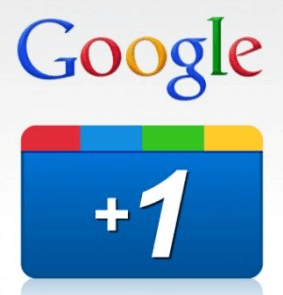Is this a contrarian view? I can’t even tell any more. On one hand, Google Plus now has 40 million users, it’s the fastest-growing social-networking site in history, and its users have uploaded 3.4 billion photos. On the other, Google is mum about how many of those users are actually active; some say that its traffic has declined significantly from its peak; Google’s own management didn’t much use it, until recently; and many agreed with Google engineer Steve Yegge’s lengthy and viral rant about how they have screwed up Plus.
Not me. I think Google+ is a hit in the making. I hardly use it myself any more — indeed, my last post there, more than a month ago, was “Sadly, it seems G+ has degenerated in my mind into little more than the place I go to complain that Twitter seems to be down” — but I’m no representative sample. Heck, I don’t really use Facebook either, except to mindlessly echo my Twitter stream.
(We pause here briefly so that bloggers everywhere can recover from their exposure to the mindblowing notion that perhaps one should not treat one’s own anecdotal experiences as universal truths.)
When Sean Parker pointed out that all your friends are already on Facebook, Vic Gundotra retorted, “Your mom and friends, guess what, they are already on Google.” As MG said some time ago, that little black bar on top of their home page and search results is their secret weapon. It gives Google an unparalleled ability to lead horses to their water. But can they make them drink?
I think they can.
Think long term. Google does. When Google initiatives flop, they’re usually pretty much dead within a month of arrival, a la Buzz or Wave. But when they get any traction, Google is excellent at pushing them uphill, bit by bit, year by year, with a relentless tide of data-driven iterations, all the way to the top of the mountain. When Chrome launched, a lot of people (including me) were bemused: why a new browser? Weren’t Firefox, Opera, and Safari more than good enough? Now it’s on track to overtake Firefox, and maybe one day even IE. When you consider the commitment Google has made to Plus, you have to figure that G+ today is a mere crude and clumsy approximation of what it will be a year from now.
And what it is today is pretty damn good. (Especially now that they’ve (more or less) stopped machine-gunning themselves in the foot, by publicly backing down from their stupid and ham-handed real-name policy.) There are already a bunch of things G+ does better than Facebook. Photo sharing. Group video chat. Allocating people to Circles. Sharing Circles with others.
…Wait, there’s sort of a theme, isn’t there? Groups. Circles. Handcrafted subsets of your friends, your acquaintances, and the people you follow. Videoconferencing with a group of your co-workers; literary discussions with the members of your book club; debates about the price of a new roof with the other members of your local community center; ongoing scheduling of your World of Warcraft guild; news from the leading lights of the political party of your choice; any of the hundreds of kinds of little or large groups of people that form and dissolve all the time. That’s what Google Plus is good at, and Facebook isn’t.
Mark Zuckerberg famously said, “Guess What? Nobody Wants To Make Lists” — but everyone lists and subdivides the people they know all the time: in their head, or on paper, or in the To: and CC: fields of their emails, for innumerable social reasons. They’ll do so online, too, if it’s easier and a more core part of the experience than it is at Facebook. I believe people want to connect to both broad-brush swathes of people — everyone they know, everyone they work with, everyone they went to school with, friends of friends — and more carefully defined groups, with finer control over identity and membership.
Can Facebook seamlessly do both, and be all things to all people? Maybe, but that’s not the direction they’re going. Ironically, they’re doing things “the Google way,” betting on sweeping algorithmic solutions with their Smart Lists and Top Stories, while Google seems to be building G+ “the Facebook way,” around personal curation and social selection. The key difference is that, as moot aka Christopher Poole said the other day, our identities — and our relationships — are prisms rather than mirrors, multi-faceted rather than black & white. Google Plus acknowledges this in a way Facebook doesn’t, and that’s a big part of why I believe it will ultimately succeed.
